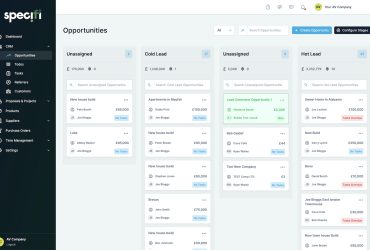A new study by Jabra looking at work habits in a post-pandemic era reveals some interesting stats about Gen-Z workers, particularly with the latest return to office policies coming into play.
While salary used to be the most important factor when choosing a job, Jabra’s Mind the Gap – How Gen Z is Disrupting the Workplace in 2023 report, finds that the new generation of workers values flexibility more than money at 35% versus 4%, respectively. Other details about this generation are crucial for employers says Jabra, since Gen Z workers, who currently make up 38% of the global workforce, are projected to account for 58% of the global workforce by 2030.
The results of the study also found that 52% of Gen Zers feel stressed and experience symptoms of burnout due to work, yet still report they feel happy in their everyday work life. In fact, more than 7 in 10 respondents said they feel satisfied with their job.
However, despite reportedly feeling “happy,” they also have one foot out the door. The majority (74%) of Gen Z believe in changing jobs as a career development driver, and 43% of Gen Z consider career more important than their personal life. They seek out flexible jobs, with 89% working in jobs that allow them to choose their own schedules. A total of 48% – almost half – are expected to change jobs in the next year. Even if they are unhappy about their jobs, 36% of Gen Z feel uncomfortable taking up conversations about feeling unhappy at work with their manager. Yet ironically, when asked what the most important qualities in a manager are, today’s employees value soft skills over hard skills. Gen Z would rather have an empathetic manager (38%) than an experienced one (9%), while honesty and integrity is five times more important than experience.

The common belief is that Gen Z views personal life over career, but 43% actually prioritize career over work-life balance. With that said, work-life balance is also considered a top measure of success at work, cited by 27% of respondents.
What about connecting with others? For Gen Z, casual catch ups in person or on video are less important to make them feel connected than chat messages, with 28% selecting this option. Gen Z was found to be twice as likely as Gen X and boomers to select social media as an influence on expectations on career (24%).
Despite fighting for a better work-life balance, and the fact that a hybrid work schedule can help achieve this, 34% of Gen Z said being face-to-face with their peers and managers is a key factor in feeling connected with colleagues at work. But they also said they feel remote video face-to-face is acceptable, too.
“We’ve never experienced a time with such stark generational differences when it comes to our core understanding of work and a job,” says Paul Sephton, Head of Brand Communications at Jabra said. “It’s critical leaders understand the complex paradoxes of how younger generations feel about the working world. Going forward, companies need to consider what consequences the Gen Z mindset could have on the workforce of the future. Providing young employees with the necessary tools, both technical and psychological, to maximize wellbeing and productivity will be a non-negotiable for those striving for long-term success.”
Download a copy of the full report.
The survey was conducted online within Australia, Belgium, China, France, Germany India, Italy, Japan, Poland, Spain, U.S., United Kingdom, Hong Kong, and The Netherlands by Toluna on behalf of Jabra from November 15 – 25, 2023 among 4,473 knowledge workers. For the purposes of this study, Gen Z are people currently aged 18-26, Millennials are 27-42, Gen X 43-58, and Baby Boomers 59-77.








